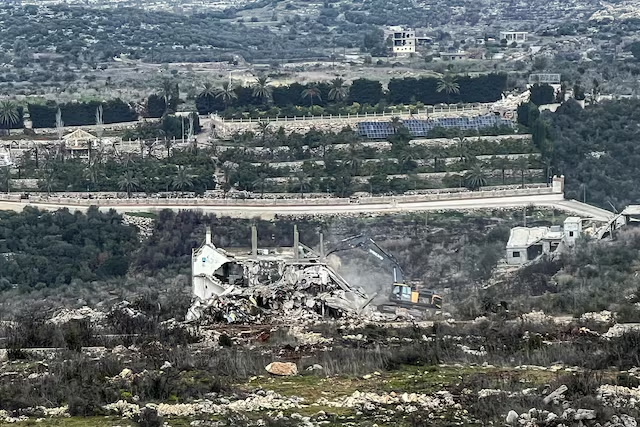On Monday, a military spokesperson announced that Israel will retain troops at several posts in southern Lebanon beyond the February 18 deadline for withdrawal. This decision comes as Israeli leaders aim to reassure residents in the northern regions that it is safe for them to return home.
The initial withdrawal timeline was established under a truce agreement brokered by Washington in November, which granted Israeli forces 60 days to withdraw from southern Lebanon. This area has been the focal point of a ground offensive against Hezbollah, the armed group based in Lebanon, which began in early October. Although the deadline was extended to February 18, both Israeli and Lebanese officials, along with foreign diplomats, had anticipated that some Israeli troops would remain stationed on the Lebanese side of the border.
Military spokesperson Lieutenant Colonel Nadav Shoshani emphasized the necessity of maintaining a military presence at these strategic points to protect Israeli citizens. “We need to remain at those points at the moment to defend Israeli citizens, to ensure this process is complete, and ultimately to hand over responsibilities to the Lebanese armed forces,” Shoshani explained during a briefing with reporters. He clarified that this decision aligns with the mechanisms outlined in the ceasefire agreement.
The ongoing situation highlights the complexities of security in the region, where tensions remain high. As Israeli troops continue to monitor the border, the implications for both national security and regional stability remain significant.
The Israeli government’s commitment to safeguard its citizens while navigating international agreements underscores the challenges faced in the volatile landscape of southern Lebanon. As developments unfold, the international community will be closely watching the situation, particularly the potential impacts on Lebanese security forces and the broader dynamics in the region.



